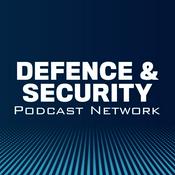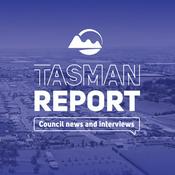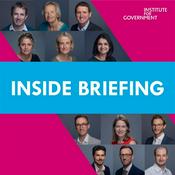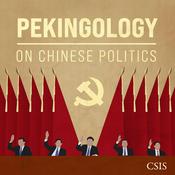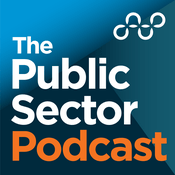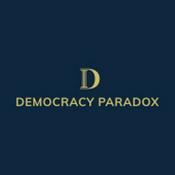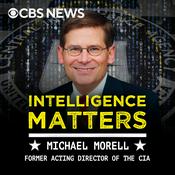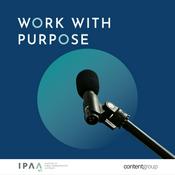39 episodes
Chaos in the Interregnum: Navigating Australia’s Technology, Strategy and Security Choices with Mick Ryan
27/1/2026 | 44 mins.In this episode of Technology & Security, Dr Miah Hammond-Errey is joined by Major General Mick Ryan to examine how emerging technologies are reshaping war, alliances, and societies at a moment of profound global uncertainty. Ryan argues that the post-World War II order has ended, leaving democracies in an interregnum characterised by growing chaos. Against this backdrop, technology—from AI and autonomous systems to information and cognitive warfare—is not removing friction from conflict, but accelerating it, widening its surface area, and increasing the consequences of strategic misjudgement.
Drawing on his recent work, Ryan explores lessons from Ukraine as a laboratory for contemporary conflict, emphasising that the most transformative shift is not drones or AI, but the speed at which societies and institutions can learn and adapt. This episode examines the changing role of alliances, the tension between values and interests, the risks of over-reliance on technology without organisational reform, and the ethical limits of AI in decision-making. The conversation concludes with an assessment of national resilience—economic, cyber, physical, and societal—and the need for clearer public conversations about risk, preparedness, and the responsibilities of citizenship in an increasingly contested world.
Major General Mick Ryan (Ret’d) is a former senior Australian Army commander and leading analyst of war, strategy, and emerging technologies, currently a Senior Fellow at the Lowy Institute and Fellow at the Center for Strategic and International Studies (CSIS).Data Integrity, AI Risk, Cyber Realities and tech leadership with Kate Carruthers
02/12/2025 | 44 mins.In this episode of the Technology & Security podcast, host Dr. Miah Hammond-Errey is joined by Kate Carruthers. Kate is currently the head of data analytics and AI at the Australian Institute of Company Directors. She shares her journey from defending Westfield against state and non-state cyber attacks to leading UNSW's enterprise data, AI, and cybersecurity efforts, including delivering the university's first production AI system in 2019 and re-architecting its cloud data platform for AI and ML. She notes boardrooms are evolving from basic cyber literacy to probing AI risks like models, data, and risk registers.
Carruthers outlines some real-world examples, such as UNSW’s enterprise AI program, including a machine learning model that predicted which students were likely to fail a course, with 95%+ accuracy, so the university could design careful, humane intervention protocols to reduce self-harm risk. She argues that while frontier models like OpenAI and Gemini have a place, their compute costs, water intensity and general-purpose design make them poorly suited to some business problems, and that the future lies in smaller, industry-specific models trained on highly relevant data. The conversation covers the rise of agentic AI coding tools, the risk of deskilling junior developers, and the need for diverse, product-focused teams to translate technical systems into workable human processes.
On security, she prioritizes CIA triad integrity over confidentiality, warning of data alterations in cars, medical devices, and government systems via poisoning or underinvestment in encryption. Carruthers urges Australian AI sovereignty—opting for open-source like Databricks over proprietary stacks—amid US-China model contrasts and outage risks from providers like AWS or CrowdStrike. Throughout, she encourages leaders not just to read about AI but to use multiple systems themselves, understand their limitations as probabilistic tools in deterministic business environments, and ground every deployment in clearly defined problems, ethics, and user needs.Human behaviour, digital twins and resilient cybersecurity with Prof Ganna Pogrebna
04/11/2025 | 42 mins.In this episode of the Technology & Security podcast, host Dr. Miah Hammond-Errey is joined by Professor Ganna Pogrebna. They explore the intersections of behavioural data science, AI, cybersecurity, and technology adoption. The discussion covers urban-rural technology divides and the dilemmas faced by small businesses using "off the shelf" AI tools. It explores Australia's global position in quantum algorithms and cybersecurity innovation and digital twins, showcasing their role in simulating complex systems in cybersecurity and even nuclear decision-making.
This episode highlights the limits of machine learning for fighting misinformation, emphasising that humans still detect novel attacks better than algorithms. Ganna shares practical inclusion strategies that policy and industry leaders can adopt, such as "inclusion riders" in contracts to increase representation. The conversation closes on actionable ways to bridge the research-adoption gap, the evolving challenge of leading human–machine teams, and the enduring need for experimentation and resilience as technology, policy, and society evolve.
Highlights
🌏 Bridging urban–rural and global divides in technology use, access and security.
🛡️ Why digital twins are useful and how they can improve cybersecurity decision-making.
🕵️♂️ Human intuition still outpaces AI for spotting new cyber threats.
⚖️ How business incentives and KPIS are still a leading method for behavioural change.
🤖 Leadership now means leading people who are combinations of human–machine.
💡 Co-design, not just adoption, drives effective technology and security tools.Counterfeit medicine, forensic frontiers and foreign interference with Dr Adrian De Grazia
07/10/2025 | 41 mins.In this episode of Technology & Security, host Dr. Miah Hammond-Errey is joined Dr Adrian De Grazia, Global Intelligence Lead at Pfizer. This episode explores counterfeit pharmaceuticals and the evolving landscape of forensic science. The conversation takes listeners inside global operations, including the technologies transforming supply chain integrity, collaboration with law enforcement, and the unique challenges of detecting and disrupting complex networks involved in medicine counterfeiting. It also explores the importance of data literacy for leaders, and the role of alliances in combating security threats at national and corporate levels.
Listeners hear about innovative approaches to product integrity and authentication—from advanced packaging to real-time tracking—alongside reflections on emerging security risks linked to AI, chemical profiling, and supply chain vulnerabilities. Insightful examples, including Operation Pangea and Australia’s digital forensic strategy for foreign interference, highlight the real-world impact of science in protecting patients, supporting public safety, and fostering interdisciplinary cooperation at local and global scales.
Please note, while employed by Pfizer, the views shared by Dr De Grazia are his own, taken from studies, personal and professional experiences past and present.
Resources
https://www.pfizer.com/products/medicine-safety/counterfeiting
This podcast was recorded on the lands of the Gadigal people, and we pay our respects to Elders past, present and emerging. We acknowledge their continuing connection to land, sea and community, and extend that respect to all Aboriginal and Torres Strait Islander people. Music by Dr Paul Mac and production by Elliott Brennan.Copyright, class action and cybersecurity... Shaping our digital future with Lizzie O’Shea
08/9/2025 | 44 mins.In this episode of the Technology & Security podcast, host Dr. Miah Hammond-Errey is joined by lawyer and digital rights activist, Lizzie O’Shea. This episode explores Australia’s technology debates from a security and legal lens—addressing copyright, creativity, AI, and the legal structures, including class action, that shape society and security. We discuss how so often in the AI discussion we are asked to make trade-offs about immense future potential with real present harms in the now. This episode breaks down why proposals to let large language models freely train on the copyrighted works of Australians have rattled artists, news media, and civil society. Lizzie explains the Productivity Commission’s push for a data mining exemption, unpacks strong community reaction, the distinction between fair use and fair dealing and highlights what’s at stake for creative industry sustainability and fair compensation in the digital age.
We also explore recent legal action against Google and Apple–in Australia–and the breadth of big tech legal and enforcement action globally, and what this means. The episode also covers the changing nature of US and Chinese AI strategies and approaches to the Indo Pacific, as well as an increase in big tech spending in Australian policy and research landscape. We explore the vulnerability of allowing mass data collection, noting that while data minimisation, and prioritising strong cybersecurity are understood priorities we question whether they are they really supported by legislative regimes. We discuss the significance of incentivising feedback in AI systems to integrate them into businesses in productive ways and crafting successful narratives for cautious adoption of AI. Finally, we look at why litigation has become central to holding digital giants accountable, and how Australians’ blend of healthy scepticism and tech enthusiasm might finally force smarter AI regulation. The conversation highlights how quick fixes and premature adoption, risk deeper, lasting social harms and national security threats.
Resources mentioned in the recording:
· Future Histories, What Ada Lovelace, Tom Paine, and the Paris Commune Can Teach Us about Digital Technology, by Lizzie O’Shea, Shortlisted for the Victorian Premier’s Literary Awards 2020 Award. https://lizzieoshea.com/future-histories/
· Burning Platforms podcast, https://percapita.org.au/podcasts/
· Empire of AI by Karen Hao
· Digital Rights Watch https://digitalrightswatch.org.au
This podcast was recorded on the lands of the Gadigal people, and we pay our respects to their Elders past, present and emerging. We acknowledge their continuing connection to land, sea and community, and extend that respect to all Aboriginal and Torres Strait Islander people.
Thanks to the talents of those involved. Music by Dr Paul Mac and production by Elliott Brennan.
More Government podcasts
Trending Government podcasts
About Technology and Security
Technology and Security (TS) explores the intersections of emerging technologies and security. It is hosted by Dr Miah Hammond-Errey. Each month, experts in technology and security join Miah to discuss pressing issues, policy debates, international developments, and share leadership and career advice. https://miahhe.com/about-ts | https://stratfutures.com
Podcast websiteListen to Technology and Security, The DSR Network and many other podcasts from around the world with the radio.net app

Get the free radio.net app
- Stations and podcasts to bookmark
- Stream via Wi-Fi or Bluetooth
- Supports Carplay & Android Auto
- Many other app features
Get the free radio.net app
- Stations and podcasts to bookmark
- Stream via Wi-Fi or Bluetooth
- Supports Carplay & Android Auto
- Many other app features


Technology and Security
Scan code,
download the app,
start listening.
download the app,
start listening.






